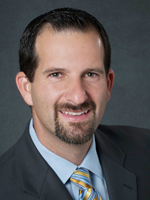
More than a dozen Florida school districts are challenging key parts of a massive new education law. But unheralded portions of that law cut red tape for nearly a fifth of the state’s public schools.
During a sit-down with charter school leaders at a charter school gathering in Daytona Beach hosted by the Florida Charter School Alliance, Rep. Mike Bileca, R-Miami, said he was open to hearing about other state regulations that could be removed under the Schools of Excellence program.
Passed in HB 7069, a wide-ranging and controversial bill, the program provides freedom from state regulations for the highest-performing 20 percent of public schools in each grade level category, whether they’re district or charter. Among other things, the law cuts down mandated instruction time in specific subjects like reading for those schools.
Bileca, who chairs the Education Committee but will leave the House next year due to term limits, said the law could offer a mechanism to give top public schools more freedoms in the future.
“We now have a framework where it’s very easy to tuck into statute: ‘Let’s provide relief from this area of regulation,'” he said.
Bileca said he was confident contested parts of the law would stand, including a new funding mechanism for charter schools. If the districts prevail in their suit, he said, lawmakers will likely make sure charters don’t wind up with lower funding than they received before the law passed.
Previously, Bileca noted, charter schools relied on annual appropriations from a specific pot of money to pay for construction and other capital expenses. As more charters opened, that money was spread more thinly, and per-student funding dwindled. The new law requires districts to share their local property taxes with charters, doing away with a funding system Bileca called “fundamentally unfair.” Now, he said, capital outlay funding essentially follows students to whatever public school they attend, even if it’s a charter.
“Our decision last session was, let’s just solve this once and for all,” he said.


